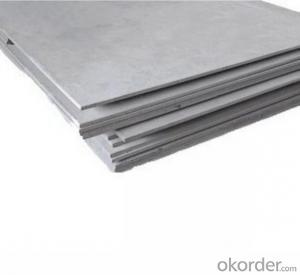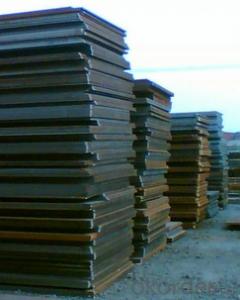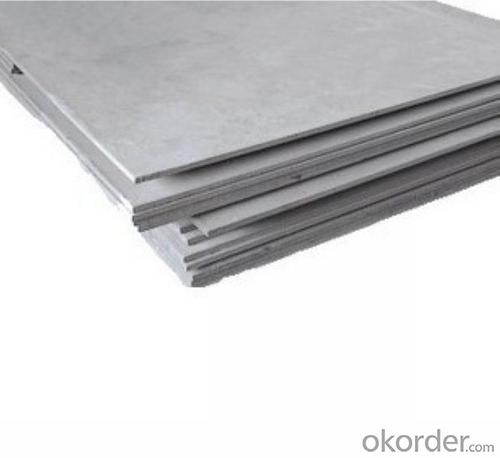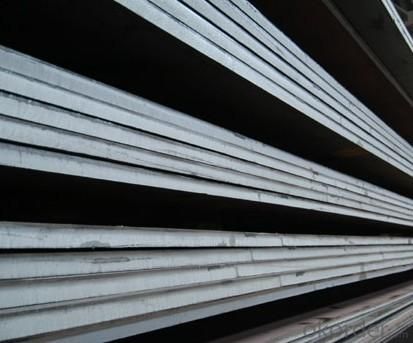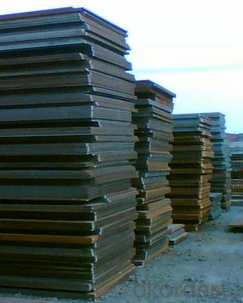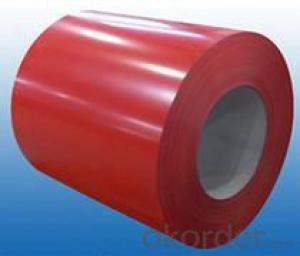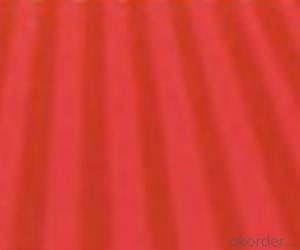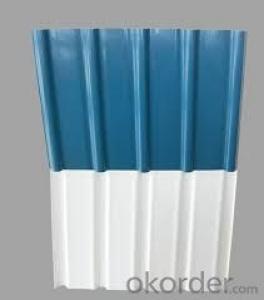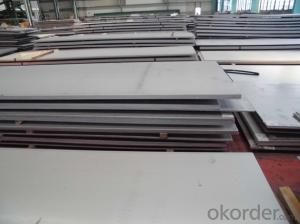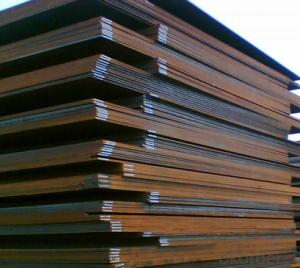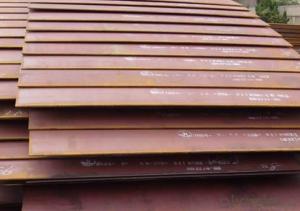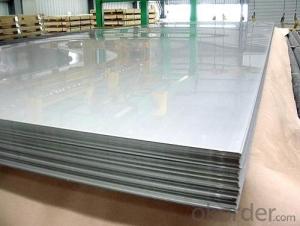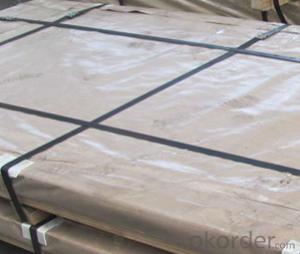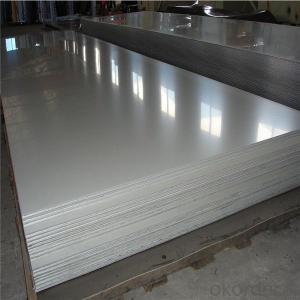Stainless Steel Plate or Sheet CR 2mm 304 CNBM
- Loading Port:
- Qingdao
- Payment Terms:
- TT OR LC
- Min Order Qty:
- 10 pc
- Supply Capability:
- 30 pc/month
OKorder Service Pledge
OKorder Financial Service
You Might Also Like
Quick Details
| Grade: | 300 Series | Standard: | ASTM, AISI, DIN, EN, JIS | Length: | 1000-6000mm |
| Thickness: | 0.2-120mm | Width: | 500-2000mm | ||
| Brand Name: | TISCO LISCO | Model Number: | 304 | Type: | Plate |
| Application: | building,decorating.... | Certification: | SGS | stardard: | ASTM,AISI,,EN,DIN,SNS |
| delivery detail: | 7-10 working days (based on the qty) | pacakage: | Standard export sea-worthy package | technique: | cold rolled and hot rolled |
Packaging & Delivery
| Packaging Details: | Standard export sea-worthy package, covered with PVC, and wooden case, or customize package for 304 stainless steel sheet |
| Delivery Detail: | nomally 7-10 working days for 304 stainless steel sheet |
Type | 304 |
Brand name | TISCO,LISCO,BAOSTEEL,ZPSS |
Thickness | 0.2mm-120mm |
Width | 500mm-2000mm |
Length | 1000mm-6000mm or customized |
Brand name | TISCO,JISCO,BAOSTEEL,POSCO,LIANZHONG,ETC |
Standard | ASTM,AISI,,EN,DIN,SNS |
Surface | 2B,CR,mirror,super mirror,BK,8K,brush,HL,NO.4,BA,NO.1,HR |
Packaging | Standard export sea-worthy package, covered with PVC, and wooden case, or customize package |
- Q: Can steel sheets be used for manufacturing shipping pallets?
- Yes, steel sheets can be used for manufacturing shipping pallets. Steel is a strong and durable material that can withstand heavy loads, making it suitable for the construction of pallets. Steel sheets can be welded or bolted together to create a sturdy and reliable pallet structure. Additionally, steel pallets have the advantage of being resistant to moisture, pests, and fire, which can be important considerations for certain industries or applications. However, it is worth noting that steel pallets are generally more expensive than other materials such as wood or plastic, so the choice of using steel sheets for manufacturing shipping pallets would depend on specific requirements, budget, and intended use.
- Q: Can steel sheets be used for modular construction?
- Yes, steel sheets can be used for modular construction. The strength, durability, and versatility of steel make it an ideal material for constructing modular buildings. Steel sheets can be easily fabricated, transported, and assembled, allowing for efficient and cost-effective modular construction projects.
- Q: Can steel sheets be painted or powder-coated after installation?
- Yes, steel sheets can be painted or powder-coated after installation. Painting or powder-coating steel sheets after installation is a common practice to enhance their aesthetic appeal and provide additional protection against corrosion. The process involves thoroughly cleaning the steel surface, applying a primer to ensure good adhesion, and then applying the desired paint or powder coating. This can be done on-site or in a specialized facility, depending on the size and complexity of the steel sheets. Additionally, it is important to ensure that the chosen paint or powder coating is suitable for exterior use and can withstand the environmental conditions to which the steel sheets will be exposed.
- Q: Are steel sheets resistant to scratching or abrasion?
- Yes, steel sheets are generally resistant to scratching and abrasion due to their high strength and durability. However, the degree of resistance may vary depending on the specific type of steel and the conditions in which it is used.
- Q: How do steel sheets compare to aluminum sheets in terms of strength?
- Steel sheets are generally stronger than aluminum sheets in terms of strength. Steel has a higher tensile strength and can withstand higher loads and impacts compared to aluminum. However, aluminum sheets are lighter and have better resistance to corrosion, making them suitable for certain applications where weight and corrosion resistance are important factors.
- Q: Can steel sheets be used as a decorative material?
- Yes, steel sheets can be used as a decorative material. Due to their durability, versatility, and sleek appearance, steel sheets are often used in architectural and interior design projects to create modern and industrial aesthetics. They can be used for various applications such as wall cladding, countertops, furniture, and decorative accents, offering a contemporary and unique look to any space.
- Q: Are steel sheets suitable for underground applications?
- Yes, steel sheets are suitable for underground applications. Steel is highly durable, corrosion-resistant, and has excellent load-bearing capacity, making it an ideal choice for underground structures such as tunnels, underground storage tanks, and foundations. Additionally, steel sheets can be easily fabricated and installed, providing a cost-effective solution for underground projects.
- Q: Can steel sheets be used for architectural designs?
- Yes, steel sheets can be used for architectural designs. Steel is a versatile and durable material that can be shaped and formed into various architectural elements such as cladding, roofing, facades, and structural components. Its strength allows for large spans and open spaces, while its aesthetic appeal adds a modern and industrial look to architectural designs. Additionally, steel sheets can be fabricated, painted, or coated to meet specific design requirements and provide longevity and resistance to environmental factors.
- Q: STCC what's the quality of the cold rolled steel sheet?
- Cold rolled steel: iron sheet thin, generally zero millimeters, galvanized; steel plate thickness, generally more than 3mm, there are also 1mm
- Q: Can 16Mn steel plate be used instead of Q345D steel plate?
- 16Mn steel plate is the old brand, the latest brand is Q345, but Q345D has a special requirement than 16Mn, that is, 20 degrees lower temperature test
Send your message to us
Stainless Steel Plate or Sheet CR 2mm 304 CNBM
- Loading Port:
- Qingdao
- Payment Terms:
- TT OR LC
- Min Order Qty:
- 10 pc
- Supply Capability:
- 30 pc/month
OKorder Service Pledge
OKorder Financial Service
Similar products
Hot products
Hot Searches
Related keywords
